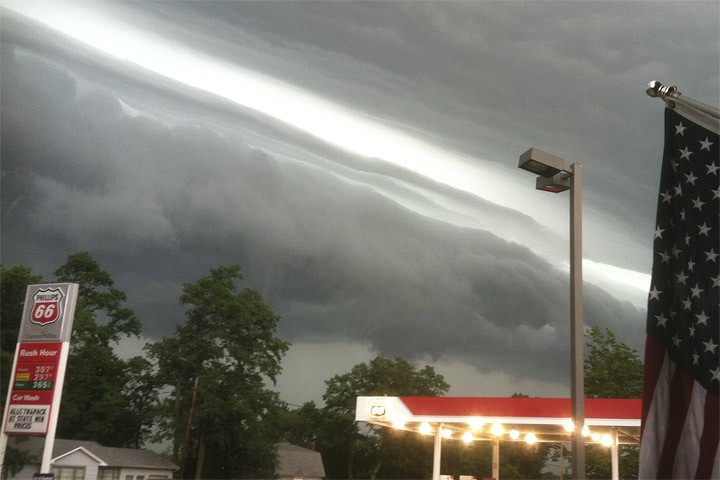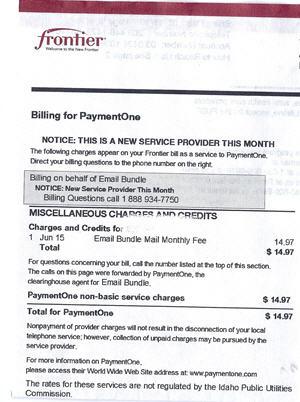On the second anniversary of Frontier Communications assuming control of landline operations in Idaho formerly owned by Verizon Communications, Frontier has announced plans to close its Coeur d’Alene call center this summer, putting nearly half of Frontier’s workers in Idaho out of work.
“There’s nothing wrong with the employees or the work they’re doing. It’s more about efficiencies,” Frontier’s senior vice president Steve Crosby told CDA Press. “What we’re trying to do is work through efficiencies, consolidations, really moving people around, having work groups working closer together.”
Those hoping to remain with Frontier will need to move to another state and accept a large pay cut if they want to keep their jobs. Other Frontier call centers around the country will assume the responsibilities of the 100 Idaho-based employees who face termination by Sept. 18, including one opening near Myrtle Beach, S.C., that will pay substantially lower salaries.
The closure will reduce Frontier’s workforce in Idaho almost in half. Crosby said Frontier had roughly 260 employees in the state as of last week.
Two years ago, Frontier was telling Idaho a very different story about its takeover of Verizon landlines.
“I think we’ll have better service for customers,” David Haggerty, then a Verizon manager staying with Frontier, told the Bonner County Daily Bee. “Frontier brings with it a small-town mentality. It used to be you were able to pay bills in town and make human contact. That was taken away by Verizon.”
In 2010, Haggerty promised the transition would have no impact on former Verizon workers now heading to work at Frontier.
 “We focus on putting the customer first,” said Frontier’s regional manager Vickie Bullard said. “That’s one of the 11 value statements we have at Frontier.”
“We focus on putting the customer first,” said Frontier’s regional manager Vickie Bullard said. “That’s one of the 11 value statements we have at Frontier.”
Some of Frontier’s customers in Idaho wonder if Frontier’s “value statements” are also being downsized.
“I just switched from Frontier to Time Warner Cable for my Internet,” says Scott Mead. “Frontier started out great in the beginning, but shortly after went downhill as issue after issue started.”
Mead reports his calls to Frontier’s national 800 customer support number, which promises 100 percent of the company’s workers are American-based, often left him flummoxed dealing with foreign-accented employees with poor English language skills.
Another Coeur d’Alene customer endured bad service from Frontier before finally leaving, with the phone company’s collection agency chasing him not far behind:
“As far as I’m concerned Frontier can take a long walk off a short pier. When they first took over from Verizon, from whom we had good service, they sent out a service guy to get us back online. He installed the wrong equipment so another serviceman came out and replaced the wrong one with a bigger, better, and faster wrong one. Over the next 6 weeks we were down all but 12 days and we heard one excuse after another with nothing getting resolved.
So a month later, after switching companies, not only did we get a bill from Frontier for the entire 6 weeks but they charged us for several wrong pieces of equipment. When we tried to resolve the issues they simply sent us to collection and refused to talk. Se we ended up paying for over 4 weeks of service they did not provide and for 4 Internet boxes that the servicemen could not get to work.
I can only hope that Frontier has an office at the bottom of a honey bucket at a chili feed. Flippin crooks.”
One former Verizon/Frontier employee suggests the “efficiencies” Crosby is concerned with is paying call center workers less, and offering fewer benefits:
“Frontier closed a center in Elk Grove, Calif. back in June leaving 50+ people unemployed there,” he writes. “When Verizon sold their landlines and DSL to Frontier back in 2009 they only guaranteed the acquired employees jobs for two years. July 1, 2012 was the second anniversary of that acquisition. This does not surprise me at all. The leadership of both Verizon and Frontier is like any other large corporation. Bottom line is the new call center in South Carolina is cheaper to operate. Why pay people over 50K (this is including 401k, stock & medical benefits) when you can pay half that in a center that has no union.”
Another Idaho employee is bitter about the extra work Frontier employees managed for the company during its great billing and systems transition away from Verizon.
“We will be out of a job, after working massive amounts of overtime to transition this company to get them through the largest conversion in telecommunications history,” the worker shared. “They needed us to get them through it and now they don’t.”
[flv width=”640″ height=”380″]http://www.phillipdampier.com/video/WMBF Myrtle Beach New Frontier Call Center 5-11-12.mp4[/flv]
Race to the bottom. Frontier Communications closes an “unneeded” 100-worker call center in Idaho that reportedly paid workers over $50,000 a year in salary and benefits while announcing a new, “much-needed” call center with 110 workers near Myrtle Beach, S.C. that will pay workers only $30,000 a year. WMBF in Myrtle Beach calls the new South Carolina call center a “success” for Horry County’s efforts to recruit new business to the area. Frontier applauded South Carolina’s “excellent business environment.” But that success comes at a cost to other workers in other states. (2 minutes)


 Subscribe
Subscribe







